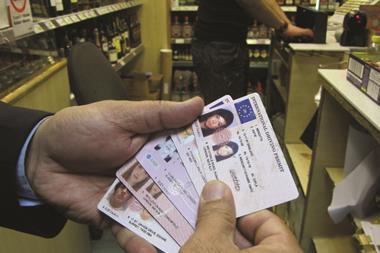Alcohol ID checks wane post-Covid, but c-stores up their game
By Sarah Britton2023-07-12T11:00:00

Serve Legal audit figures show that many outlets are failing to request proof of age
ALREADY HAVE A REGISTERED USER ACCOUNT? PLEASE LOG IN HERE
To read the full story join the ConvenienceStore.co.uk community today!
Registration is quick and easy and provides access to:
- Unlimited ConvenienceStore.co.uk articles
- Our great range of newsletters
- Content you’ve saved for later via the ‘my library’ feature
And much more…
Related articles
More from News
Unlimited Access + Newsletters
Register today to gain unlimited access to articles and to receive our great range of email newsletters.































